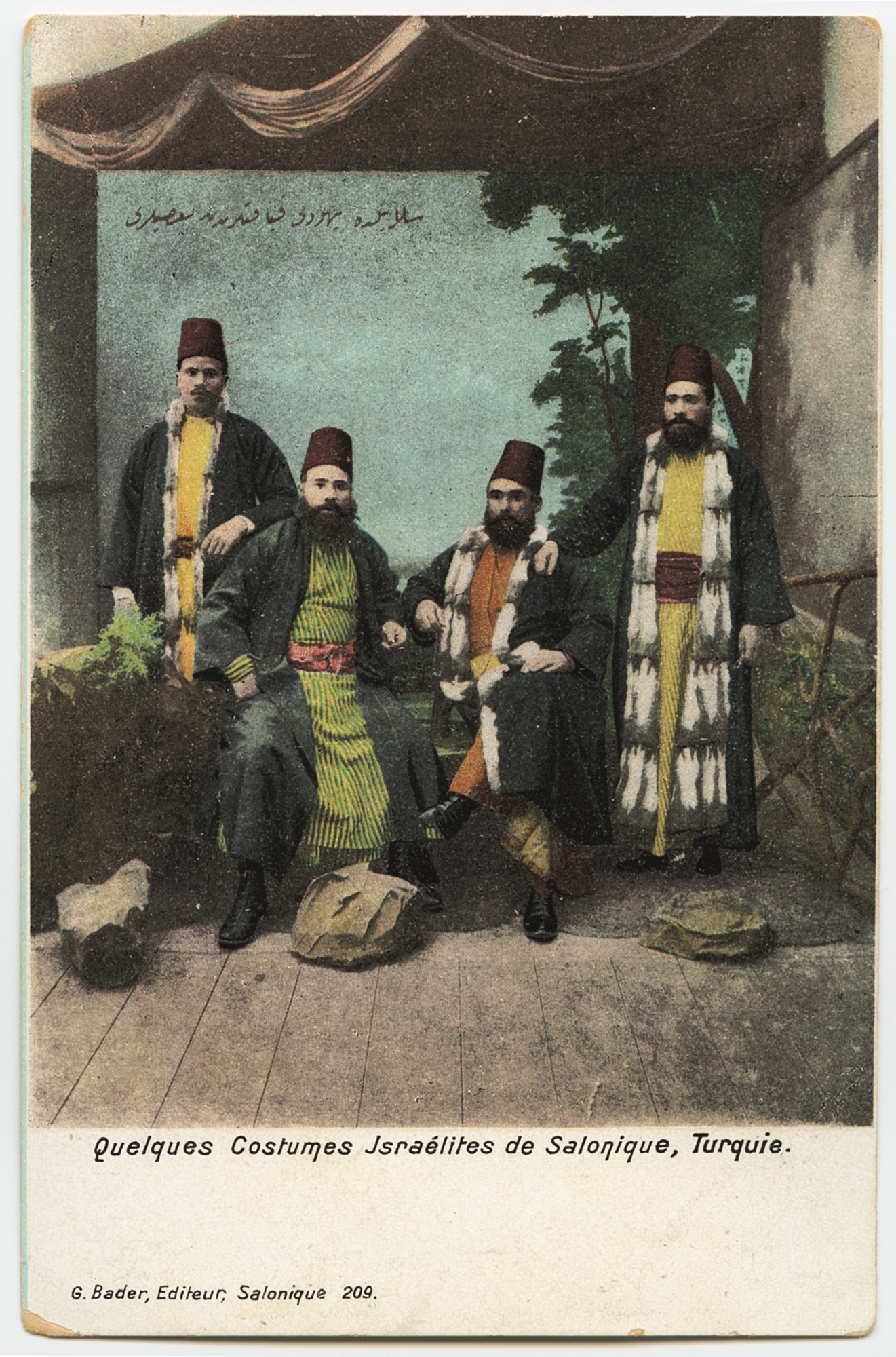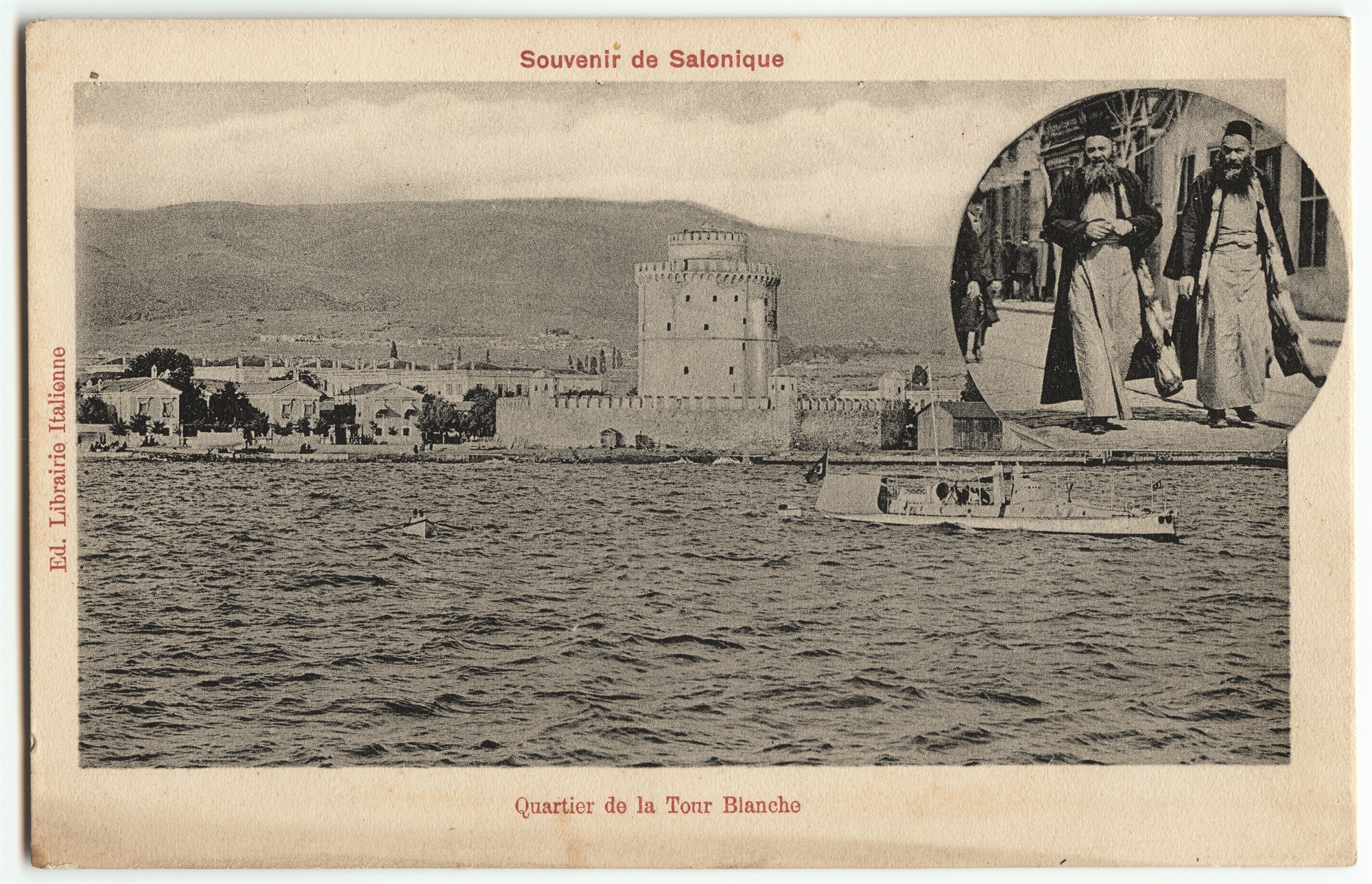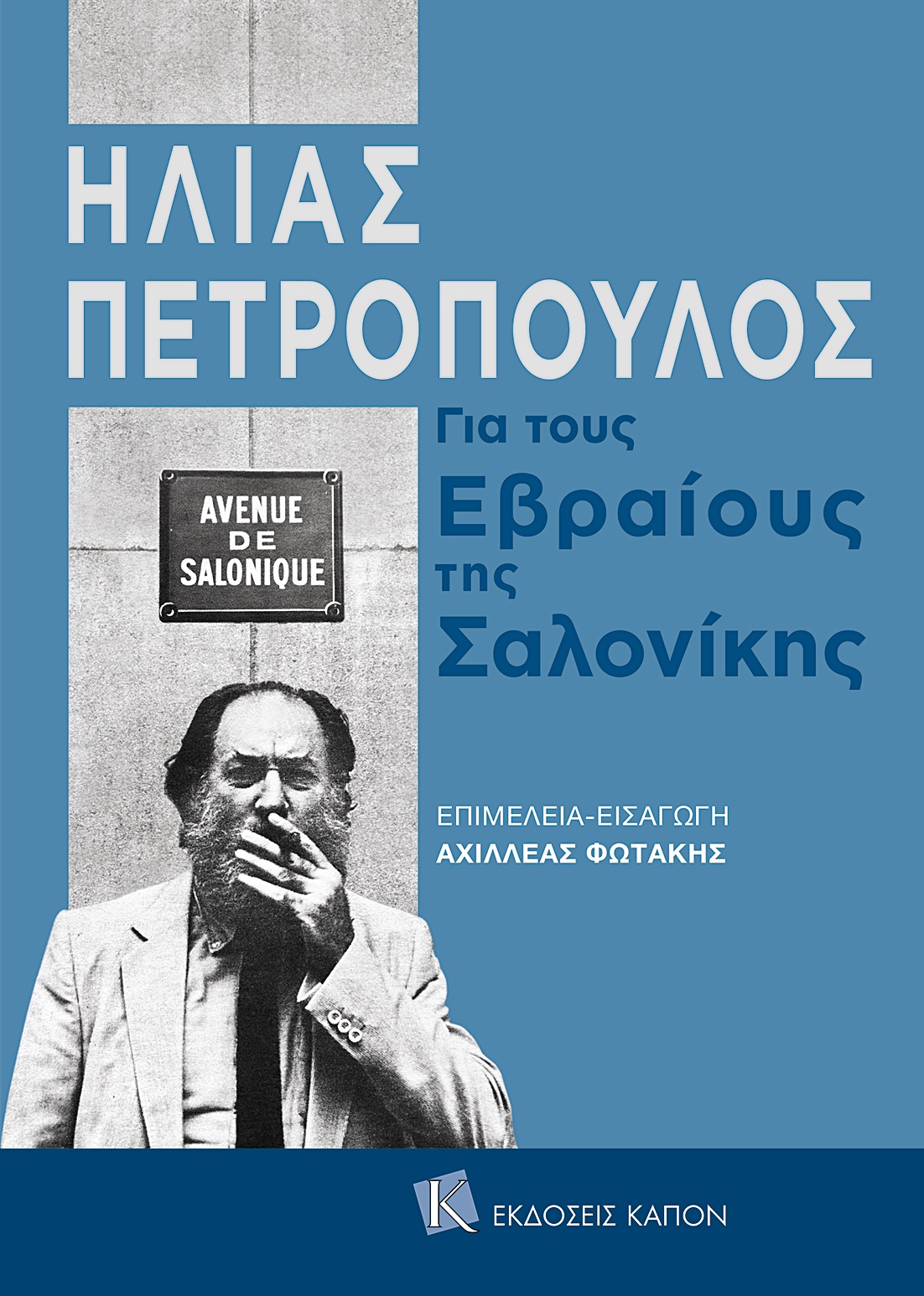
“How did you hear about Ilias Petropoulos and his writings on the Jews of Thessaloniki?” we ask the historian Achilleas Fotakis. “I studied in Thessaloniki, and in this city you stumble upon History in different ways,” he replies, and tells us about the night he and his friends literally stumbled upon a cobbled tombstone from the Jewish cemetery of Thessaloniki, which was vandalized in 1942. .
“These tombstones from Jewish cemeteries were living history, they lay on the ashes of oblivion that covered the History of Thessaloniki,” he comments. “Sometimes they were turned upside down to erase the traces of the crime, and sometimes the Hebrew letters were visible, perhaps because they looked like beautiful patterns to eyes that did not understand the language.”
So, in the publication “Ilias Petropoulos. For the Jews of Thessaloniki” (published by Capon), a book edited and presented by Mr. Fotakis, his love for the books of Petropoulos – “an author who knew well the value of microhistory” – crossed paths with the problem of anti-Semitism, which he systematically studies himself.

Chlias Petropoulos was born in Athens in 1928, but soon the family moved to Thessaloniki. “I spent part of my childhood in Thessaloniki, in the Jewish town of Thessaloniki,” he wrote in his text “Keg of Needles,” anthologised in the publication.
Near their house, the author recalls, lived “a patriarchal Jewish family, supported by two petty grocers.” Little Ilias and his peer Samuel, who was affectionately called Samiko, quickly became friends.
Howell family
“Kindness was the chief characteristic of the Havell family,” Petropoulos wrote in The Barrel of Needles. “However, the mother groaned and muttered: are you at Tsifuti again? to see that in the end they will put you in a barrel of needles. Now I’m old and I know that the barrel of needles is nothing more than a racist fairy tale. But then I was a child and missed fairy tales. […] For forty-six years now I have dreamed of Samikos (of course, Samikos and the entire Howell family ended up in Auschwitz forever). At that time, I never dared to ask him where the hell they had hidden the barrel of needles. And I continued to climb the wooden stairs of his house to admire his sister’s shining eyes, to crunch on the masa (unleavened bread) that was given to me, to smell the bottles of rose petals that were thrown at the windows to watch them roast. onions, there are salted and dried melon seeds.

Obviously, one of the great pleasures offered to the reader by this collection of Petropoulos’s texts is the opportunity to “hear” him, after 18 years of editorial silence, tell us in his unique language what he has learned from the “mean kid of history.” “, as he himself called, seemingly insignificant details of life.
However, this particular edition has an additional value: it provides useful information both for students of Petropoulos’ work and for those concerned with Thessaloniki’s Jewish past. It is a series of texts written “at a time when writing ‘about such things’, that is, the history of the Greek Jews and Greek anti-Semitism, did not bring any rewards, just like that,” writes the historian in the introduction, adding that, in contrast to the fact that happened at the same time with other intellectuals, Petropoulos systematically dealt with both the question of the historical presence of Greek Jews and anti-Semitism.
Living in pre-war Thessaloniki, he knew well that in the past it was a Jewish city with a Jewish majority population and Latin American as the dominant language. The fact that this wealthy community, which had flourished in Thessaloniki for five centuries, was annihilated in a few months in 1943 – about 50,000 people, almost 96% of the city’s Jews – made him return to this topic.

Most of the relevant texts can be found in the 1980s and 1990s, when the author was already in his 60s when he actually tried to go back to his youthful years. Throughout the 1980s, Petropoulos fought to end the institutional silence on the Jewish historical presence in Thessaloniki, and indeed, in 1982, he sent letters to the then minister of culture, Melina Merkouris, and other officials.
In the historical context of an era that, for various political reasons, did not approve of such ideas at all, Petropoulos’s writings were deposited as part of his more general efforts. “These were cries of sincere longing for a writer—perhaps the only one at the time—who protested against the deliberate oblivion and use and abuse of History by the state,” Mr. Fotakis comments.

Source: Kathimerini
Ashley Bailey is a talented author and journalist known for her writing on trending topics. Currently working at 247 news reel, she brings readers fresh perspectives on current issues. With her well-researched and thought-provoking articles, she captures the zeitgeist and stays ahead of the latest trends. Ashley’s writing is a must-read for anyone interested in staying up-to-date with the latest developments.